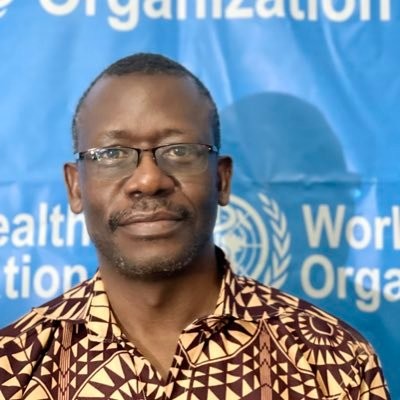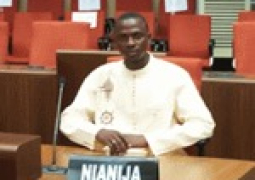
Dr. Nathan Bakyaita made these remarks on Wednesday during a day’s capacity building training for members of the National Immunization Technical Advisory Group (NITAG) held at Ocean Bay, Cape Point.
He added; "We plan to keep that position and if there has been any fall we are coming back to be the best in immunisation in the sub-region."
Dr. Nathan also spoke about the pivotal role of NITAG in strengthening health outcomes, revealing that the latter has contributed to this remarkable milestone by providing technical and scientific guidance to the government on optimal immunisation policies, norms, and programs among a host of others.
He reminded that they also played a lead role in providing timely evidence-based recommendations, and advising the Ministry of Health especially the EPI on immunisation strategies.
In terms of UNICEF and WHO, the WHO Country representative disclosed that they have been providing to NITAG especially in the areas of evidence-based decision making, systematic reviews, and policy formulation, and points of formulation.
"In addition, an EPI Comprehensive Review was supported in 2015, an external surveillance review undertaken in 2017, and NITAG members were trained in 2021. In 2024, the National Immunization Strategy and Portfolio Planning were also developed. Support has also been initiated to conduct a Comprehensive EPI Review and EPI Policy Development which will provide data to inform the NITAG on national strategies."
He expressed optimism that in view of the composition of this NITAG, which attracts members from the academia like University of The Gambia, MRC and also the Ministry and the UN system, they can initiate some protocol and best practice that will enable them address some of issues at hand.
Dr. Nathan also spoke about support extended to immunisation infrastructure, pointing out that through that support, the country has received a lot of equipment, including vaccine refrigerators, cold boxes, and walk-in cold rooms.
These investments, he added, have significantly improved the capacity of health facilities to store and manage vaccines safely and effectively.
"Both WHO and UNICEF work on the joint reporting form, which helps us to track the NITAG functionality across the six key indicators. But as we face emerging challenges like urbanization, migration, post-COVID recovery, and the introduction of new vaccines, our immunization strategies must evolve."
To that end, he maintained that NITAG must strengthen evidence synthesis and decision-making through research, assessing the epidemiological fit; that is, the burden of disease, transmission patterns, and population vulnerability, as well as championing equity and gender sensitive delivery mechanisms.





